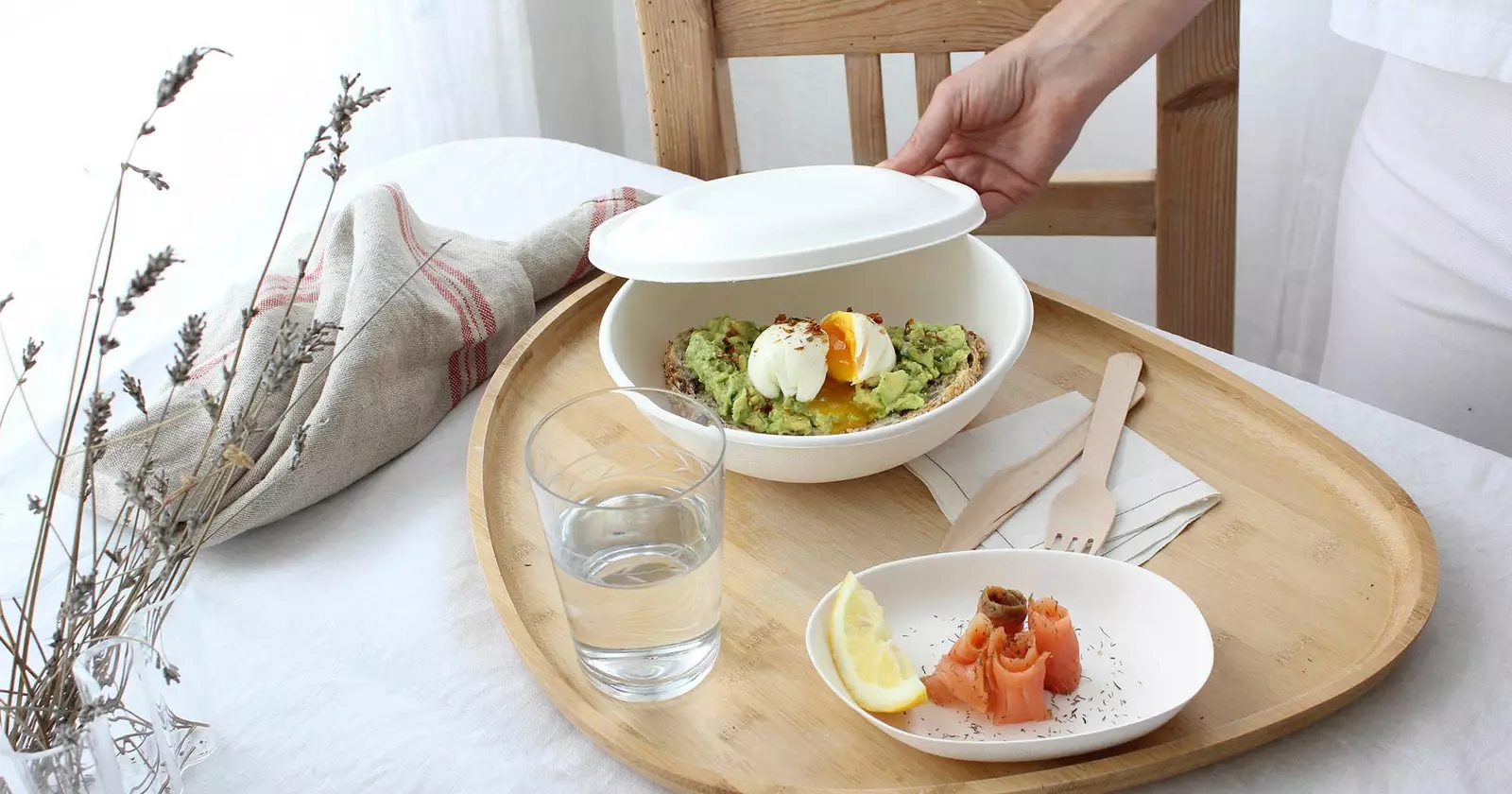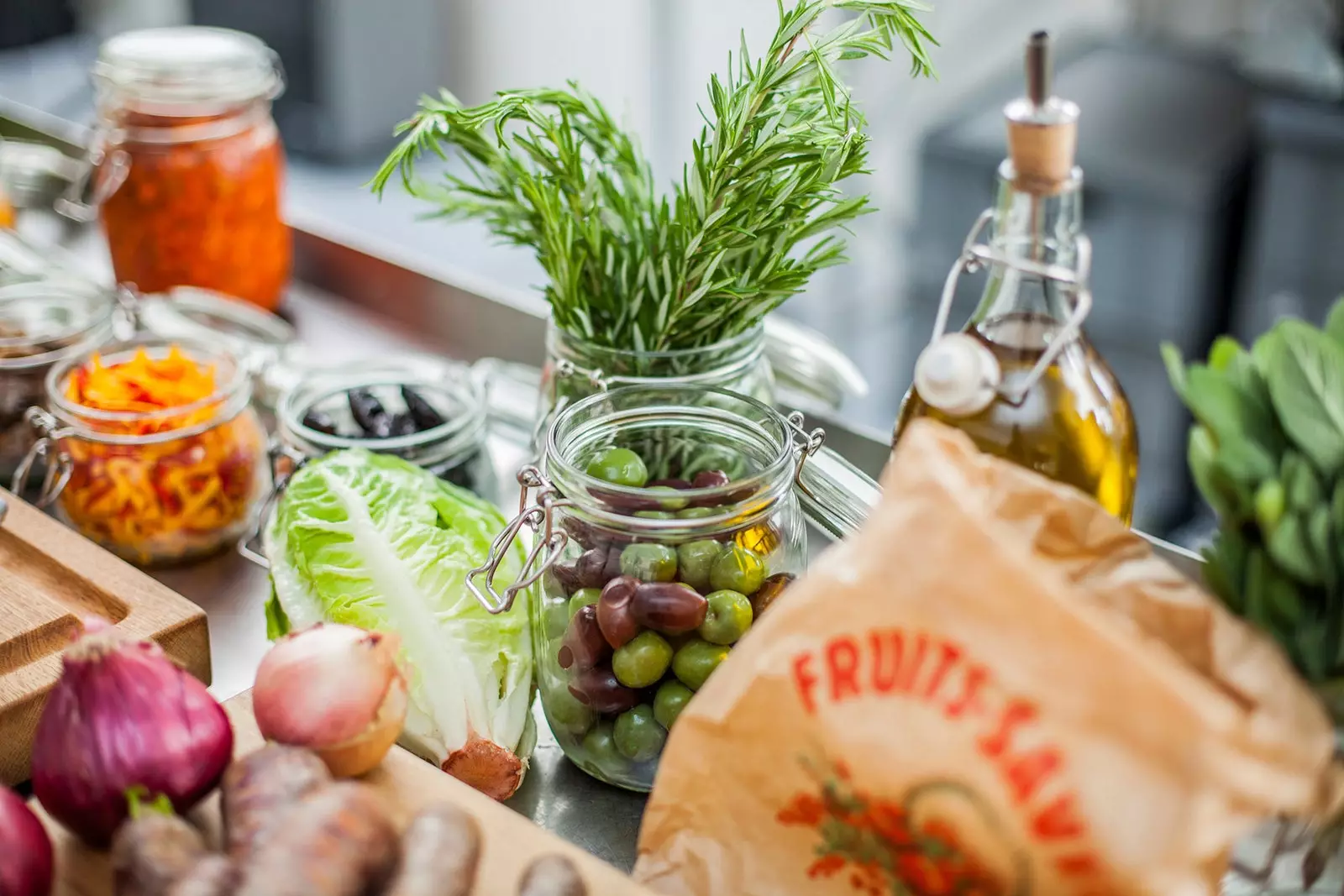
In the world of biodegradable packaging, beauty is not at odds with sustainability
Gone are restaurants as we know them, at least for now. Goaded by a crisis regulation that either does not allow them to open, or greatly limits the available space, gastronomic establishments, in order to survive in these times, have almost necessarily switched to delivery and take away. And what happens now with the plastic and single-use containers?
With this new business model, disposable containers , so reviled just two months ago -and, many, at the dawn of their disappearance-, are living a revival , and not only in the hotel sector: according to data from Ecoembes, since March 14, the yellow container has received up to 15% more waste than usual.
The gloves and masks made with this material are not recycled, but yes -although not in its entirety- many of the single-use containers that food comes in . The format, due to its 'apparent' hygiene -although, in theory, a reusable one would be just as safe- is now being much more chosen by citizens than a couple of months ago, a fact to which is added the closure of 'alternative' surfaces in which more environmentally friendly containers are used.
The landscape is dangerous : as Greenpeace denounces, "if the recycling percentages were already low, the health crisis may be reducing these figures even more". The current situation, according to the NGO, has abolished manual separation at triage plants , which differentiated the containers for subsequent recycling. "Thus, fewer materials are recovered and, therefore, waste destined for landfill and incineration increases."

It seems that the war against single-use plastics is going into reverse
THE HOSPITALITY SECTOR AND ITS SUSTAINABLE ALTERNATIVES
Despite the efforts made by organizations such as the aforementioned Greenpeace, which have urged Spanish supermarkets to commit with plastic reduction on their shelves, the truth is that, today, large surfaces practically do not offer viable alternatives to the reduction of the material contaminant.
In the hotel sector, however, countless high-quality recyclable and even compostable materials are emerging, so it seems possible that this sector will start en masse in the world of delivery with fewer consequences for the environment. "Currently, there are on the market all types of fully biodegradable packaging , made of sugar cane, cardboard, wheat fiber and corn starch. They can be frozen, heated, and some can even be baked. We even have large 1.5-litre saucepans that could dress up a gala table," explains David Ramos, head of the Klimer sustainable catering supply store, which has seen its orders increase by 300% in recent weeks.
In this context, single-use tableware companies such as Cookplay are also taking advantage of the current situation to launch biodegradable and designer packaging, such as their recent EKO Bowl collection. The offer, then, is varied, so much so that it's hard to choose : "We have compared hundreds of prices, hundreds of materials... The premise is that it should be a completely sealed container: its hermetic quality is what most concerned us," say Ana Vicaria and Fede Ayllón, owners of the La Casa del Perro restaurant in Malaga.
After 16 years with their successful open business, they now face the challenge of having to prepare their food to go for the first time, and the challenge is proving to be complicated: "Our obsession in embarking on this, which is going to be for a while, and not exactly a matter of a month, it is that we have to do it well, which is how we like to do things. That is why, when searching, our tendency has been go green , which is in tune with the type of gastronomic proposal we offer".
In the end, hoteliers have decided to avoid recyclable packaging (because "only part of it can be reused", they detail) and opt for compostable ones (which degrade completely), specifically, for packaging made from vegetable fibers of BeCompost. However, this choice is not the one carried out by most restaurants, as Ramos assures, citing reasons such as lack of awareness and price difference : "The sustainable ones cost 10% more, although every day we are managing to match them a little more than the plastic ones," he explains.
For Vicaria and Ayllón, who still have to pay the full rent for their premises in the center of Malaga, the price of the compostable containers they have chosen almost doubles that of the plastic ones , a difference that, however, will not make your menu more expensive. "It is somewhat offset by the fact that we do not wash dishes, that we will not spend money on supplies such as dishwashers," they analyze.
Looking to the future, and with a view to the forthcoming opening of their online store, in which they will sell, in addition to their meals, some of the products they offer in their establishment -such as natural wines or organic vegetables-, hoteliers are looking for a sustainable material to take advantage of your heat sealing machine (Klimer, Ramos tells us, sells one that seals paper fiber trays with a biodegradable coil).
The reason is that it provides an "even tighter" finish, which would also prevent an unexpected problem: the lack of covers with which they have found when placing their orders. "They are sold separately, and we don't know if it is because they break a lot or why, but we have found numerous containers for which the lids are exhausted," they conclude.
